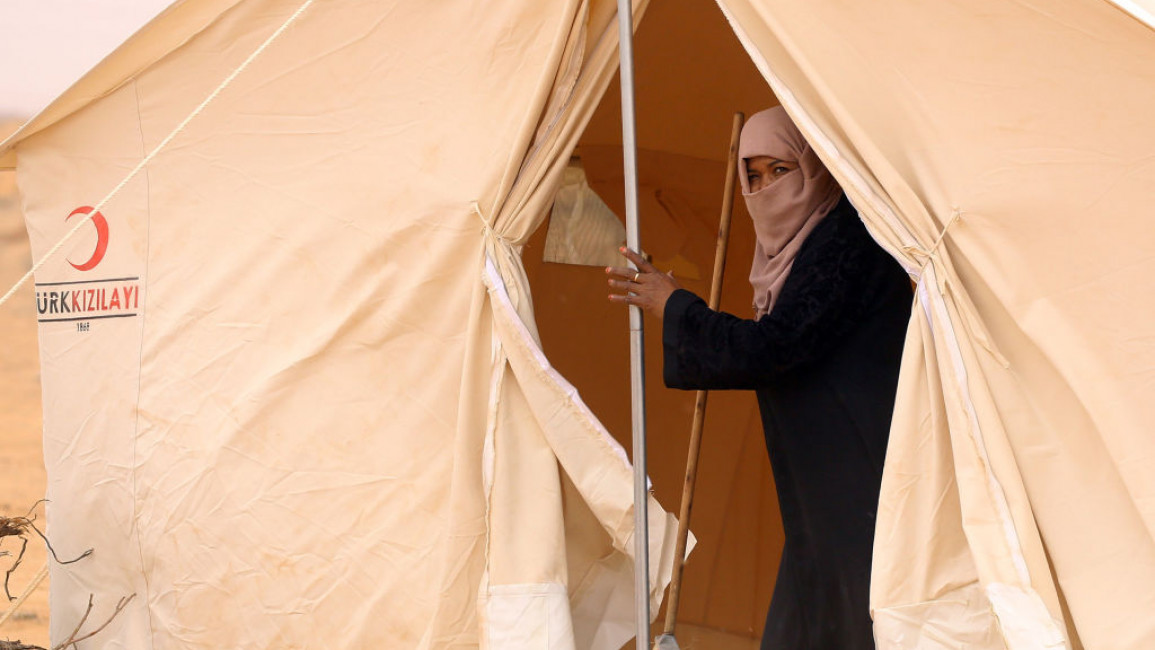World must do more for Libyans, aid groups say, before crunch peace conference takes place
The international community must focus on providing civilians in war-torn Libya with their day-to-day needs, aid groups have said, in the run-up to a major conference meant to bring the country a step closer to peace and stability.
The Libya conference will take place on 23 June in Berlin, hosted by the German government and the United Nations.
Elections, set for 24 December and stabilisation, will be high on the agenda but focus also needs to placed on the basic needs of civilians in Libya, the aid groups working in the country said in a joint statement released Monday.
"The stability of Libya will not come about by just holding elections or withdrawing foreign fighters," said Dax Roque, the Norwegian Refugee Council's Country Director in Libya.
“True stability can only be achieved if the lives of ordinary Libyans and the country’s many migrants and refugees are rebuilt. High-level discussions will fall short if they don’t also address the devastation inflicted on peoples' lives and the very infrastructure on which they depend day to day.”
Libya has suffered recurring conflict since dictator Muammar Gaddafi was overthrown in 2011. One in five people in Libya need humanitarian assistance to cover their basic needs, and over 280,000 people in Libya are displaced.
Libya's infrastructure has been left obliterated, but donor countries have only given one-fifth of the money pledged for this year's humanitarian response plan for the country, the aid groups' statement said.
"The first thing we need from the international community is peace, safety and security," a displaced Libyan in Benghazi was quoted as saying in the statement.
"But even if we were able to return home, our houses are destroyed and the little assistance we have received I have had to use to pay for food and rent. It won’t be enough to rebuild my home."
Libya, on the Mediterranean, is a key point on the journey of refugees and migrants heading for Europe. Thousands of them are languishing in detention centres whose conditions human rights groups have condemned.
In a glimmer of hope for the country, a ceasefire was agreed to in October 2020. An interim government was put in place in March 2021 replacing the two rival administrations that existed before. The transitional government reopened a highway linking cities in the east and west, and flights have resumed between the cities of Benghazi and Misrata.
Libya was discussed at the NATO summit with French President Emmanuel Macron reportedly presenting US President Joe Biden with a six-month plan for the withdrawal of troops from the country.
"For the first time in many years, Libya has a real chance at achieving peace and stability," Tom Garofalo, the International Rescue Committee's Country Director in Libya said in Monday's joint statement.
"But, the foundations for Libya's recovery are extremely fragile. International leaders must maximise this critical moment in Berlin to address the immediate humanitarian and longer-term needs of everyone in Libya.
"A failure to do so will undermine the very stability this conference wants to usher in, leaving hundreds of thousands of people struggling to cope while they also face the potentially decades-long task of rebuilding their lives."



